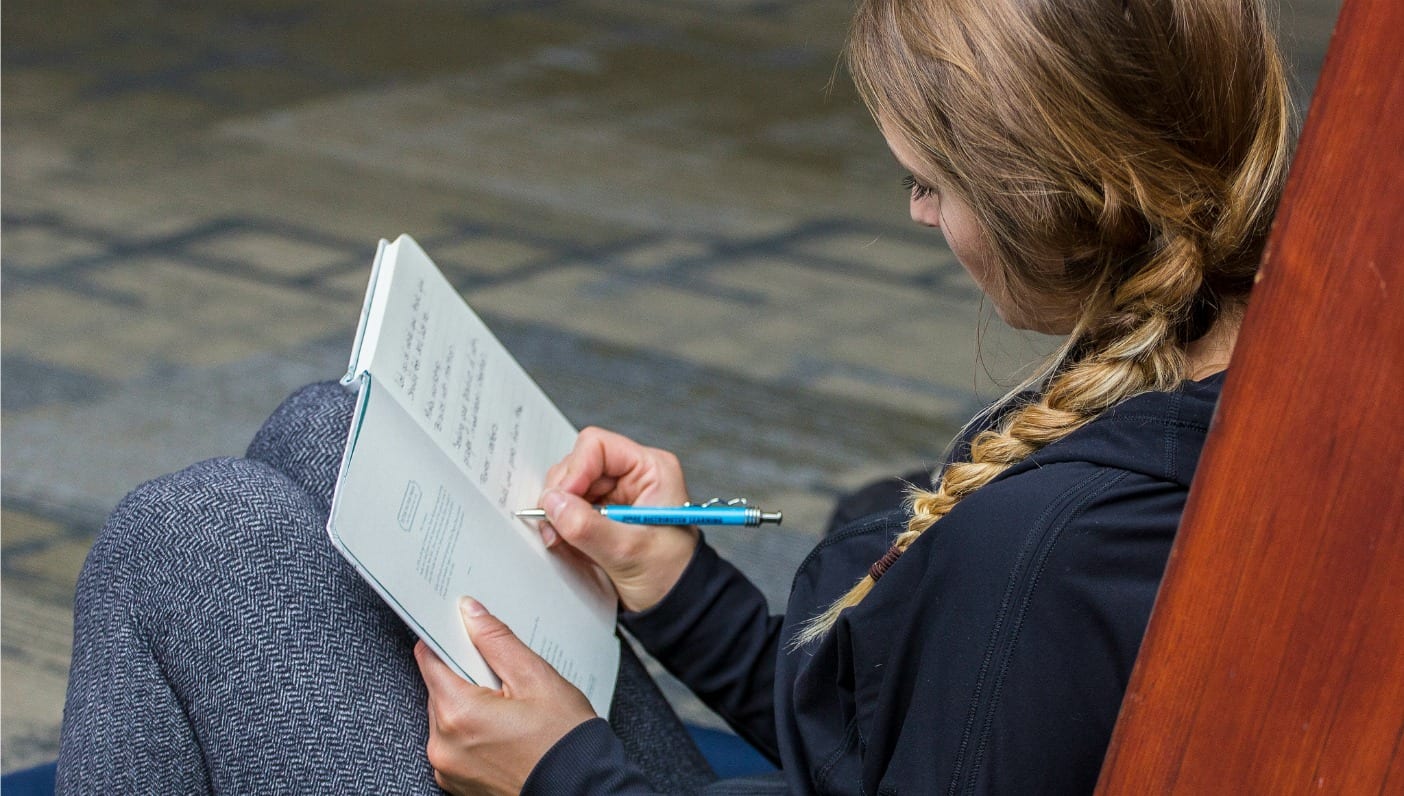
This piece is part of a month-long Wanderlust and YOGANONYMOUS series about the power of journaling.
Long before I knew what meditation was, puberty and its wellspring of emotional surplus would bring me to my first journal entries. At this impetus, they were a scribbled mess of automatic writing, pensive unraveling, and unplanned poetry. In a naïve way, I thought that having a record of my mess and confusion would help me to connect to my future psychotherapy clients.
What I could not account for, at my ripe age of 12, was that this ongoing record of my internal space would provide some of the best fodder for self-knowledge that I could ask for (Note: Journaling is cheaper than therapy.). Since the seventh grade, journaling has been my main meditation, and the autobiographical library I have of my burgeoning adult life has given me unyielding insight.
There is a word I would later learn that comes from the yoga tradition, which means, “to cultivate” or “develop.” Bhavana is the cultivation of an aspect of self towards a more fruitful and desirous condition. When my yoga mentor told me to create a bhavana about my five-year professional plan while at a crossroads in careers, I hadn’t known that I had been practicing this all along.
Then, I had no idea what I was cultivating. Now, having a context like bhavana to help guide me, I can look back at the raw content of old entries and see that the person I admired in others was coming out in me a few moments at a time.
As a senior in high school fantasizing about my life as a successful, world-traveling woman, my journal entries held detailed accounts, drawings, and encouraging words to create her. As a broken-hearted college freshman, the tomes of love letters to my ex were, in hindsight, a cultivation of my worldview on spiritual love and compassion. As a young clinician decompressing from the twisted world of child abuse and misdiagnoses, the catharsis outlined the severe contrasts in how people cope with stress and what a healthy relationship looks like between a parent and a child. Thumbing through a journal from 2009, I read a quote from a conversation with my mother about trusting my instincts when I needed to let go of a case that was too dysfunctional for me to handle. There were lessons to be learned in these pages.
Through a consistent journaling habit, I developed my voice as a writer, learned to process my emotions more intelligently, and distilled wisdom from situations that had left me overwhelmed. Journaling cleans the mental palate, allowing for more sophisticated thinking. It even lends itself to problem solving—I’d often find myself mapping out conversations or plans of action to redeem an outcome I didn’t like. Journaling provides a place to purge all of the underdeveloped, reactionary “child stuff.” My inner monologue gets to have a place outside of my head, and all of my “big girl” words get practice in fantasy-journal land.
Even a quick, visual survey after a great journaling session speaks volumes to the scope of emotion I feel—the at times illegible and sporadic handwriting changes illustrate the completed download from my inner space to the page. Without so much as a second thought or justification, journaling is a private form of self-expression that is as essential as bathroom time. Releasing the parts of me that I don’t want to keep free up my energy to continue manifesting in the ways that I do… And somehow, by leaving a paper trail of my best and worst moments in history, I release their burden and can enjoy the ordinariness of my life as it happens.
Rereading old entries has helped me to discover obsolete thinking patterns—the actual words I use to demolish my own potential. When I hear myself starting to think or say them aloud, I can now stop it from happening. Seeing my raw, vulnerable, immature self inked on the page lets me celebrate who I was and where I am in the process of arriving.
In the blank space created after a great journaling session, the woman I prefer to be can come through: intelligent and self-compassionate; an eloquent woman who approaches her life with balance and creativity.
—
 Niki Saccareccia (E-500) is an author and Clinical Behavior Therapist. Niki’s insight into personal transformation is a unique and rare blend of methods from Western Psychology and Eastern Wisdom Traditions. Her approach is practical and concise, blending the best elements of alignment and mindfulness teachings into her classes. For more about Niki, visit www.lightinsideyoga.com.
Niki Saccareccia (E-500) is an author and Clinical Behavior Therapist. Niki’s insight into personal transformation is a unique and rare blend of methods from Western Psychology and Eastern Wisdom Traditions. Her approach is practical and concise, blending the best elements of alignment and mindfulness teachings into her classes. For more about Niki, visit www.lightinsideyoga.com.